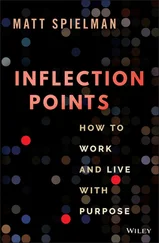Staring out the window, all I could think about was what the people on the ground were enduring. What goes through your mind when your entire community is destroyed? Do you take a mental inventory of everything you left behind? I worried most about the people stranded. I imagined the desperation they must be feeling as they scrambled to their rooftops to outrace the rising water. I said a silent prayer for their safety.
At some point, our press team ushered photographers into the cabin. I barely noticed them at the time; I couldn’t take my eyes off the devastation below. But when the pictures were released, I realized I had made a serious mistake. The photo of me hovering over the damage suggested I was detached from the suffering on the ground. That wasn’t how I felt. But once the public impression was formed, I couldn’t change it. For all my efforts to avoid the perception problem Dad faced during Hurricane Andrew, I ended up repeating it.
I’ve often reflected on what I should have done differently that day. I believe the decision not to land in New Orleans was correct. Emergency responders would have been called away from the rescue efforts, and that would have been wrong. A better option would have been to stop at the airport in Baton Rouge, the state capital. Eighty miles north of the flood zone, I could have strategized with the governor and assured Katrina victims that their country stood with them.
Landing in Baton Rouge would not have saved any lives. Its benefit would have been good public relations. But public relations matter when you are president, particularly when people are hurting. When Hurricane Betsy devastated New Orleans in 1965, Lyndon Johnson flew in from Washington to visit late at night. He made his way to a shelter in the Ninth Ward by flashlight. “This is your president!” he called out when he arrived in the dark and crowded space. “I’m here to help you!” Unfortunately, I did not follow his example.

When I landed at the White House Wednesday afternoon, I convened an emergency meeting in the Cabinet Room to discuss the response. “Every agency needs to step forward,” I told the team. “Look at your resources and find a way to do more.”
I gave a statement in the Rose Garden outlining the federal response. The Transportation Department had sent trucks to deliver supplies. Health and Human Services provided medical teams and mortuary units. Energy opened the Strategic Petroleum Reserve to protect against a major spike in gasoline prices. The Defense Department deployed the USS Bataan to conduct search-and-rescue and the USNS Comfort , a hospital ship, to provide medical care. FEMA surged supplies into the disaster region and set up shelters for evacuees. We later learned there were major problems with organization and tracking, leading many deliveries to be delayed or never completed.
These logistical measures were necessary, but they seemed inadequate compared to the images of desperation Americans saw on their television screens. There were victims begging for water, families stranded on overpasses, and people standing on rooftops holding signs that read “Help Me!” More than one person interviewed said the same thing: “I can’t believe this is happening in the United States of America.”
On top of the hurricane and flood, we were now facing the third disaster: chaos and violence in New Orleans. Looters smashed windows to steal guns, clothing, and jewelry. Helicopters couldn’t land because of gunfire. Downtown buildings were aflame.
The police force was powerless to restore order. While many officers carried out their duty honorably, some abandoned their posts to deal with their own personal emergencies. Others joined the criminals. I was enraged to see footage of police officers walking out of a store carrying big-screen TVs. I felt like I was watching a reverse of what had happened four years earlier in Manhattan. Instead of charging into burning buildings to save lives, some first responders in New Orleans were breaking into stores to steal electronics.
A horrific scene was developing at the Superdome, where tens of thousands of people had gathered to take shelter. After three days, the roof was leaking, the air-conditioning had stopped working, and sanitation facilities had broken down. The media issued reports of sadistic behavior, including rape and murder. Between the chaos and the poor communications, the government never knew for sure what was happening. It took us several days to learn that thousands of other people had gathered with no food or water at the New Orleans Convention Center.
With the police unable to stop the lawlessness, the only solution was a stronger troop presence. As of Wednesday afternoon, New Orleans had about four thousand National Guard forces, with reinforcements on the way. But the Guard, under the command of the governor, seemed overwhelmed. One option was to deploy active-duty troops and put both them and Guard forces in Louisiana under the unified command of the federal government.
Forces from the 82nd Airborne Division awaited orders to deploy, and I was prepared to give them. But we had a problem. The Posse Comitatus Act of 1878 prohibited active-duty military from conducting law enforcement within the United States. Don Rumsfeld, speaking for many in the military, opposed sending the 82nd Airborne.
There was one exception to Posse Comitatus. If I declared New Orleans to be in a state of insurrection, I could deploy federal troops equipped with full law enforcement powers. The last time the Insurrection Act had been invoked was 1992, when Dad sent the military to suppress the Los Angeles riots. In that case, Governor Pete Wilson of California had requested the federal deployment. The Insurrection Act could be invoked over a governor’s objections. In the most famous example, President Dwight Eisenhower defied Governor Orval Faubus by deploying the 101st Airborne to enforce the Supreme Court’s decision desegregating Central High School in Little Rock, Arkansas.
On Thursday morning, Day Four, Andy Card formally raised the prospect of federalizing the response with Governor Blanco and her team. The governor did not want to give up authority to the federal government. That left me in a tough position. If I invoked the Insurrection Act against her wishes, the world would see a male Republican president usurping the authority of a female Democratic governor by declaring an insurrection in a largely African American city. That would arouse controversy anywhere. To do so in the Deep South, where there had been centuries of states’ rights tension, could unleash holy hell. I had to persuade the governor to change her mind. I decided to make my case in person the next day.
I was as frustrated as I had been at any point in my presidency. All my instincts told me we needed to get federal troops into New Orleans to stop the violence and speed the recovery. But I was stuck with a resistant governor, a reluctant Pentagon, and an antiquated law. I wanted to overrule them all. But at the time, I worried that the consequence could be a constitutional crisis, and possibly a political insurrection as well.

On Friday morning, Day Five, I convened a seven o’clock meeting in the Situation Room with the government-wide Katrina response team. “I know you all are trying hard as you can,” I said. “But it’s not cutting it. We have to establish order in New Orleans as soon as possible. Having this situation spiral out of control is unacceptable.”
As Mike Chertoff and I walked out to Marine One for the trip to the Gulf Coast, I delivered the same message to the press pool. “The results are not acceptable,” I said. “I’m headed down there right now.”
Читать дальше












